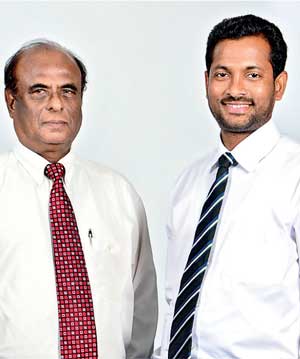Reply To:
Name - Reply Comment
Angelo Patrick, FCMA, CGMA (Group Director, Capital Maharaja Organisation) and his son Sohan, ACMA, CGMA (Deputy General Manager, MAS Fabrics) both began their careers with the CIMA qualification. 
Here they elaborate on how the CIMA syllabus has evolved over the years to reflect business needs, the changing nature of the finance function and how CIMA enables professionals to stay relevant.
“When I started studying for the qualification in 1969, CIMA was an obvious choice for me given the dearth of business qualifications in the country at the time,”
states Angelo.
Elaborating further, he says: “Back then, CIMA was known as Institute of Cost and Works Accountants (ICWA). At that time, it was a works-oriented qualification which is where cost accounting and management accounting fitted in well”.
The word ‘Works’ is related to manufacturing and factory level activities. Fast forward to the early 2000s when Sohan left school, the higher education choices available to students had increased exponentially. Sohan chose CIMA for its flexible nature, which allowed him to study at his own pace whilst engaging in competitive sports.
For Sohan, one of the most effective syllabus changes has been the introduction of the case study exams, which he believes meets the employability needs of both business and people: “Case studies are a good way of bridging the gap between technical knowledge and its application to a real business scenario. In this way, the CIMA professional qualification is aligned with the real world of business.”
Angelo and Sohan acknowledge the changing roles of finance professionals, and how they must have the high quality technical skills and understanding of their organisations to execute business strategies. “Finance professionals are required to be business partners, adding value to the business. Individuals who pursue a career in finance are needed to work at the heart of the organisation, across operations,” says Sohan. Adding to his statements, Angelo comments: “CIMA graduates are business leaders, not merely accountants. The syllabus has the edge in this aspect, as it has a holistic approach, thereby introducing you to strategic business management.”
Their advice to professionals and students who are contemplating a career in management accounting is to invest in the fundamentals: “There’s a clear difference between an individual who has invested the first couple of years in the ‘nuts and bolts’ of the profession, compared to someone who has not. In my experience, I spent 3 years in an audit firm, which allowed me to hone my fundamentals in finance and accounting, the benefits of which are felt now,” advises Sohan. “There is no management sans understanding, or involvement in the core functions of the internal business process and customer perspective,” are Angelo’s thoughts on the matter.
Both Angelo and Sohan are also Chartered Global Management Accountants (CGMAs) by virtue of their membership with CIMA. With the recent formation of the Association of International Certified Professional Accountants by CIMA and the American Institute of CPAs that represents 650,000 members and students in public and management accounting, the CGMA designation is set to further make its mark on the profession.